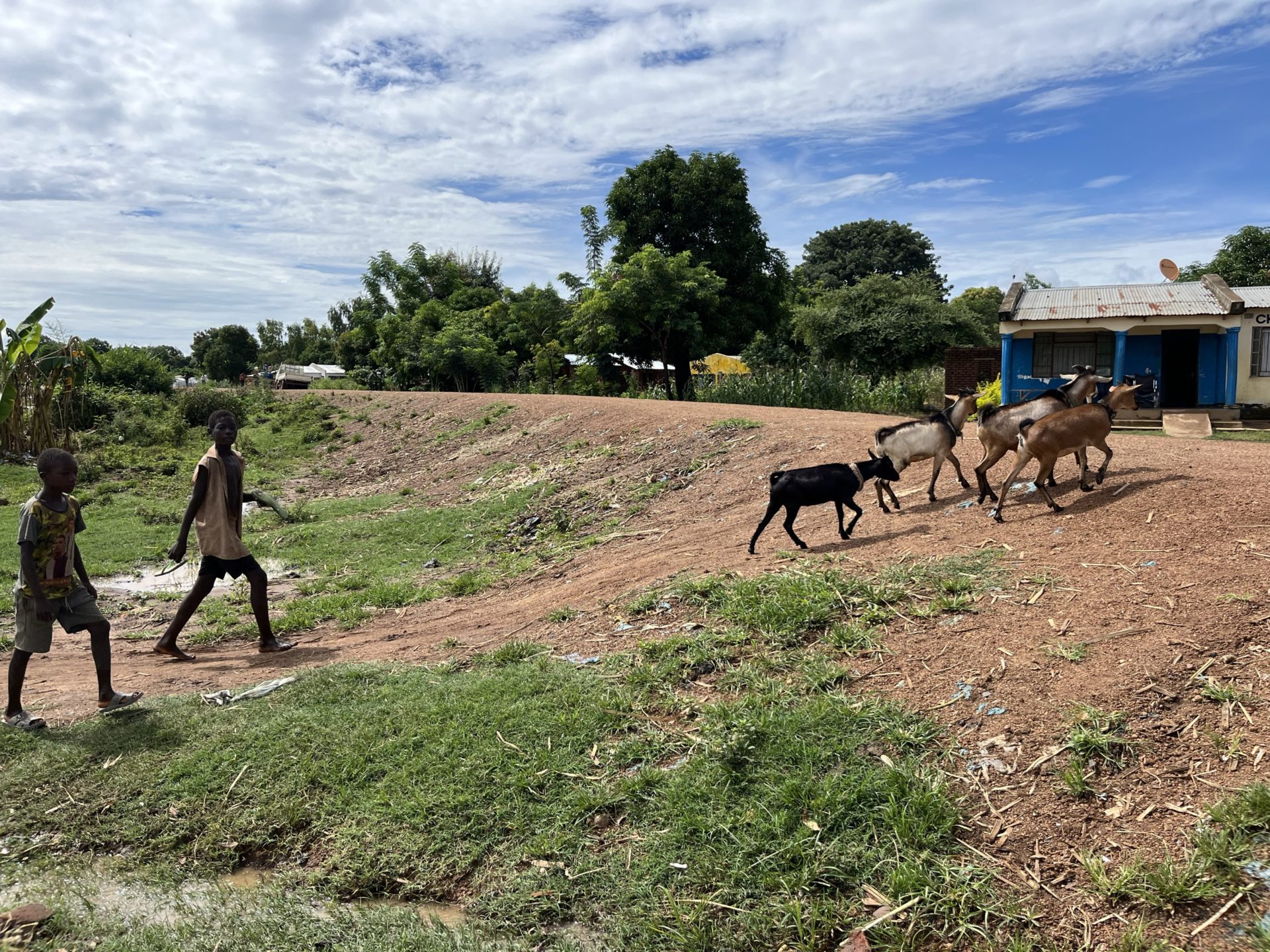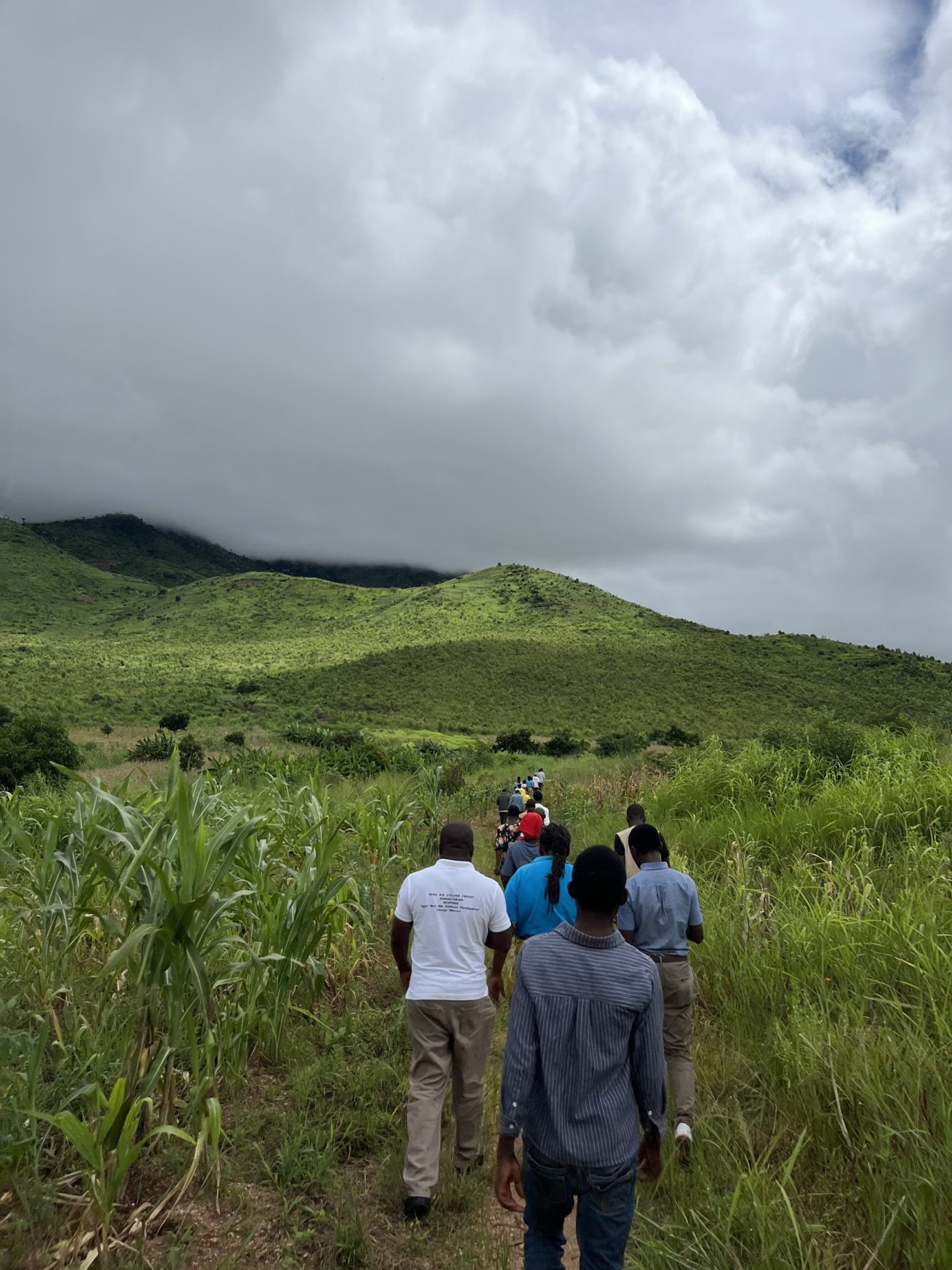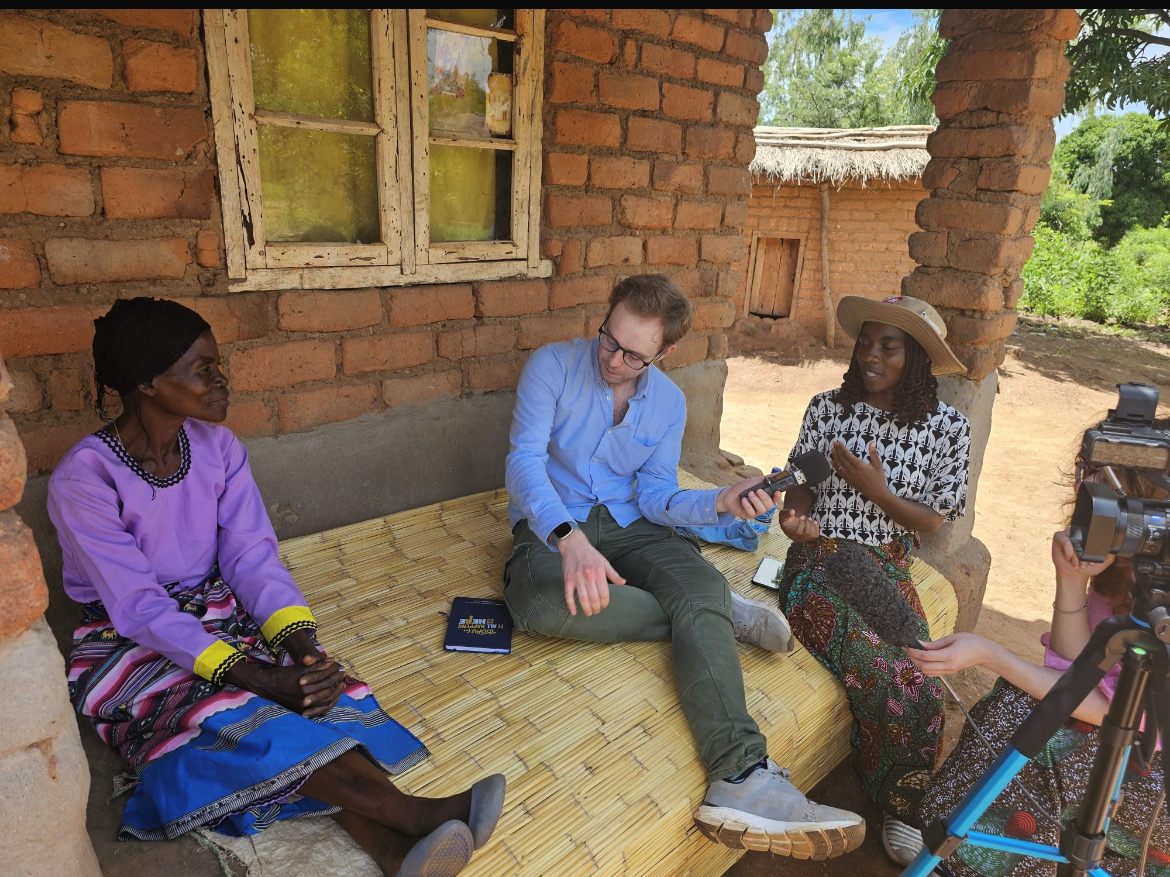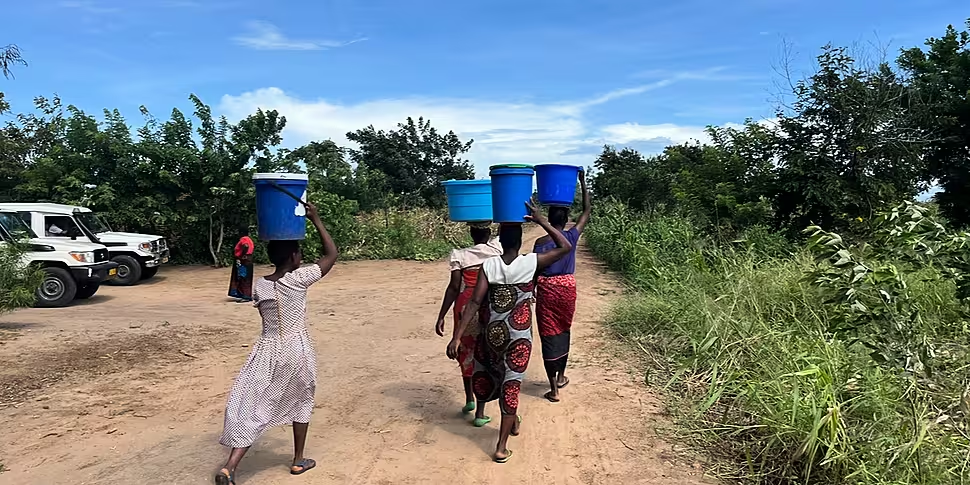Eight million people in the African country of Malawi could soon be left hungry due to the rapidly worsening impact of climate change.
The country has endured four cyclones since 2019 and one, Cyclone Freddie, was the longest lasting storm in the southern hemisphere.
At least 1,200 people died during Freddie and a further 500 are missing - but presumed dead.
Speaking to reporter Ben Finnegan for The Pat Kenny Show, one local said his community thought Freddie was “the end of the world” as it raged outside their homes.
“I know of a family that has been wiped out completely,” he said.
“They are dead, the whole family and we don’t even know where they are because their bodies were not recovered.
“They didn’t even get a decent burial.”
 Women collecting water in the Machinga District of Malawi. 13/03/2024. Image: Newstalk
Women collecting water in the Machinga District of Malawi. 13/03/2024. Image: NewstalkThe bill for the damage caused by Freddie came in at €550 million.
By Irish standards, that is a significant amount of money but for Malawi it is an impossible sum to find.
“We haven’t got enough support,” Peter Chimangeni, from the Department of Disaster Management Affairs, admitted.
“From Government, [it’s] less than 1% of the requirement.”
Mitigation
To help Malawians cope with the impact of flooding, development charity Trócaire is working with people in the small community of Msiyama.
Only a few hundred people live there and it is hugely at risk due to climate change.
Trócaire funds pay for community classes on mitigating climate change and reforestation that enables the soil to better withstand flooding.
Volunteers also manage a WhatsApp group that supplies locals with daily weather reports.
In Ireland, a weather report might change your plans for the weekend - but in Malawi, the knowledge that a flood is on the way can save a person’s life.
 A walk up the mountain is needed to collect water. 13/03/2024. Image: Newstalk
A walk up the mountain is needed to collect water. 13/03/2024. Image: NewstalkFor Trócaire spokesperson Conor Kelly, the extreme weather Malawi is proof of the devastating impact climate change is wreaking on the planet.
“The immediate concerns for Malawi would be the impact of this El Niño [weather] cycle,” he said.
“For Malawi, El Niño would mean in the south of the country too little rain, it would mean there would be drought conditions.
“Whilst for the north, it means there would be too much rain - so, there would be flooding.
“Over the next year, we expect the number of food insecure people to reach up to eight million - so obviously that’s going to have a big impact on the communities that we work with.”
 Ben in Malawi. 13/03/2014. Image: Newstalk
Ben in Malawi. 13/03/2014. Image: NewstalkDespite the impact climate change is having on the country, Malawi’s carbon footprint is relatively low.
The average Malawian only uses 0.1 tons of carbon a year.
By contrast, an Irish person will usually burn through 7.72 tons and an American 14.95.
It means the future of the country is very much in the hands of developed nations.
“Malawi is one of the most impacted countries in the world, you see the statistics, we’re one of the top 10 countries who have been impacted by climate change,” Mr Kelly said.
“That will only continue to get worse unless action is taken.”
Main image: A walk up the mountain is needed to collect water for people in Msiyama. Image: Newstalk









